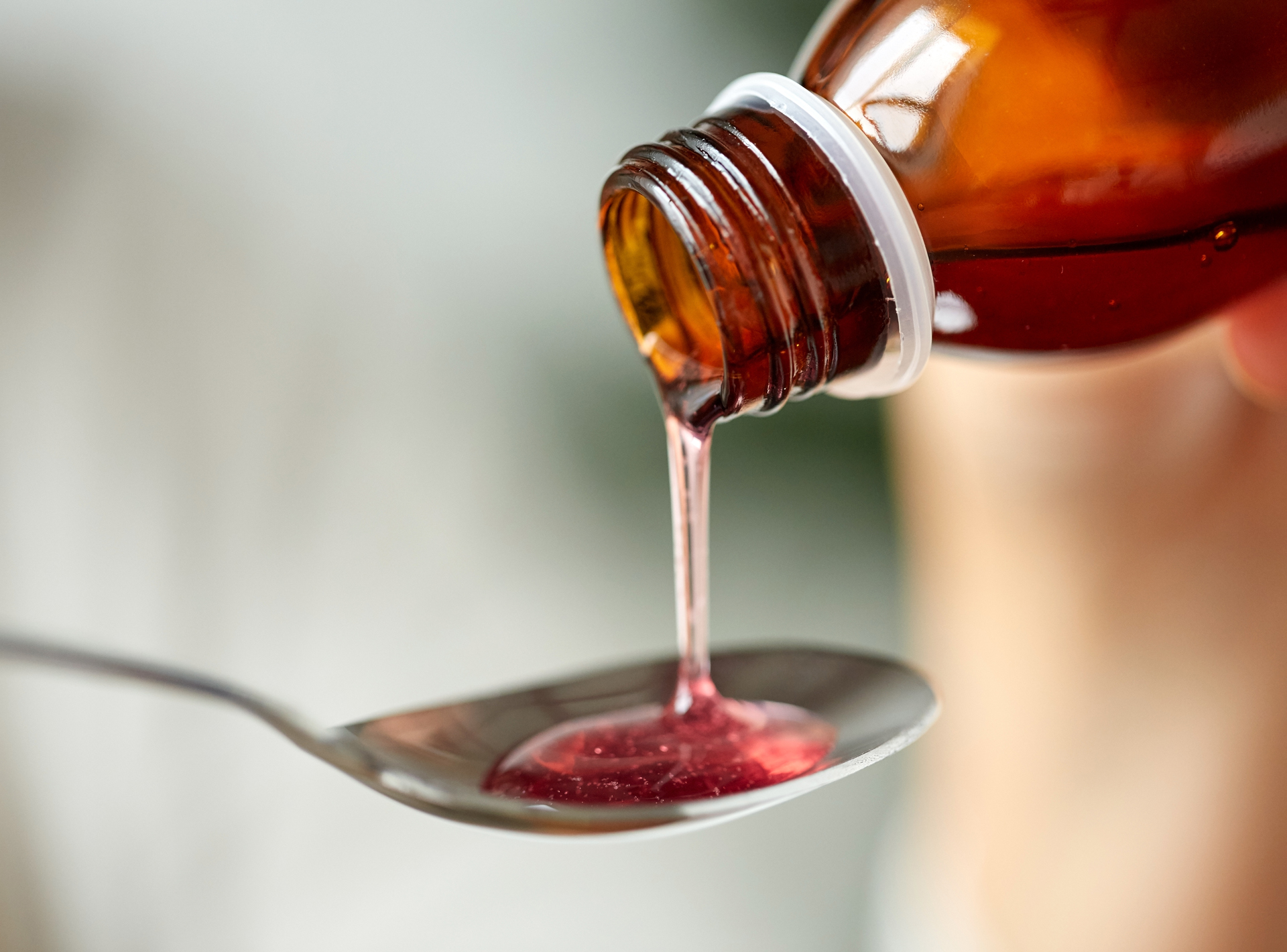 Pholcodine cough medicines have been cancelled by the TGA and recalled from pharmacies for safety reasons.
Pholcodine cough medicines have been cancelled by the TGA and recalled from pharmacies for safety reasons.
Following a safety investigation by the TGA, 55 products containing pholcodine, a derivative of morphine, are being cancelled from the Australian Register of Therapeutic Goods and those currently on pharmacy shelves are being recalled.
The cancellation and recall actions, announced on 28 February 2023, have been implemented due to an emerging link between pholcodine-containing medicines and an increased risk of anaphylactic reactions to neuromuscular blocking agents (NMBAs) used during general anaesthesia.
Up to 9 February 2023, the TGA has already received 50 reports of Australian cases of suspected pholcodine-related anaphylactic reactions to NMBAs, including one fatality.
Pholcodine is among the most commonly used over the counter (OTC) medicines to treat dry coughs on the Australian market, particularly in syrups and lozenges, and is also used in combination with other medicines in products that treat the symptoms of cold and flu.
Recalled products include ‘dry, tickly, cough medicine’ brands such as Benadryl, Bisolvon, and Duro-Tuss, as well as generic ‘chemist’s own’ medicines produced by pharmacy chains such as Priceline, Chemmart, Amcal and Terry White.
Head of the TGA, Adjunct Professor John Skerritt, explained that it is difficult to reliably predict who may be at risk of anaphylaxis during anaesthesia and some patients may not know if they have taken pholcodine medicines recently.
“Some patients undergoing emergency surgery may not be in a position to talk to their anaesthetist at all, and while surgical facilities may ask about which prescription medicines a patient is taking, they may not ask about over the counter products,” Professor Skerritt said.
“Fortunately, safer alternatives to treat a dry cough are available and consumers should ask their doctor or pharmacist for advice. I urge consumers to check if any of your over-the-counter cold and flu medicines contain pholcodine and, if they do, ask your doctor or pharmacist to suggest an alternative treatment.
“’If you will need general anaesthesia and have taken pholcodine in the past 12 months, I advise you to tell your health professional. Health professionals should also check whether patients scheduled to undergo general anaesthesia have used pholcodine in the previous 12 months.”
Dr Ian Musgrave, a Senior Lecturer in the Faculty of Medicine, School of Medicine Sciences, within the Discipline of Pharmacology at the University of Adelaide, noted that the benefits of the ban far outweighed the potential risks, especially in emergency situations.
“Since it can be very difficult to determine if someone about to undergo anaesthesia has taken a pholcodine-containing medicine, the risk was determined to be too great given the minimal benefit of pholcodine for it to remain a registered medicine,” Dr Musgrave said.
Anaphylaxis during anaesthesia occurs rarely but is potentially fatal and in Australia, it has been estimated to occur in approximately 1 in 11,000 cases. NMBAs are the most implicated drugs in immunoglobulin (IgE)-mediated anaphylaxis, and it is estimated that 60% of intraoperative cases are linked to NMBAs.
The allergenic portion of the NMBA molecule (epitope) is thought to be the tertiary or quaternary ammonium ion (QAI) that enables IgE to bond with pholcodine, inducing the reaction.
Dr Ashley Hopkins, the Head of the Clinical Epidemiology Research Group at Flinders University, said that as a pharmacist and clinical epidemiologist, he strongly endorsed the TGA’s decision to deregister pholcodine.
“The decision to remove pholcodine from the market is based on strong scientific evidence, including several studies that have shown a clear link between the use of pholcodine and an increased risk of anaphylaxis,” Dr Hopkins said.
“As healthcare professionals our primary concern is the safety and well-being of our patients and removing a medication that poses such a significant risk is a necessary step in ensuring that patient safety is maintained.
“In addition, there are several alternative medications available that can be used to treat coughs without the risk of anaphylaxis, and these alternatives have been proven to be just as effective, and they offer a safer option for patients who may be at risk of allergic reactions.”
The TGA’s investigation followed a review by the European Medicines Agency (EMA) recommending the withdrawal of marketing authorisations for these products in Europe, and their findings were supported by a WA study which also showed that pholcodine was a risk factor.
Pholcodine was withdrawn from the Norwegian market in March 2007 because of this suspected link and a result, the prevalence of sera IgE sensitized to the drug among those with allergy decreased from 11% to 2.7% in 2010, and the number of anaphylactic intraoperative incidents decreased significantly.
The same outcome was also observed in a retrospective study from Sweden. Anaphylaxis to NMBAs in Norway was observed to be approximately 10 times higher than in Sweden, and a closer investigation into the reasons for this found that pholcodine was not available in Sweden but was widely used in Norway.
In Australia, NSW Medicines Formulary Information issued a statement on 5 December 2022 that pholcodine will no longer be listed on the NSW Medicines Formulary citing evidence from the EMA study as well as noting that the effectiveness of pholcodine is not well established.
“A Cochrane review including 26 trials in adults and children (of variable study characteristics and quality) found that there was no good evidence for or against the use of pholcodine in the outpatient setting for an acute dry cough,” the statement said.
“The lack of scientific data supporting the efficacy of pholcodine has been acknowledged by both the TGA and EMA in previous reviews.”

